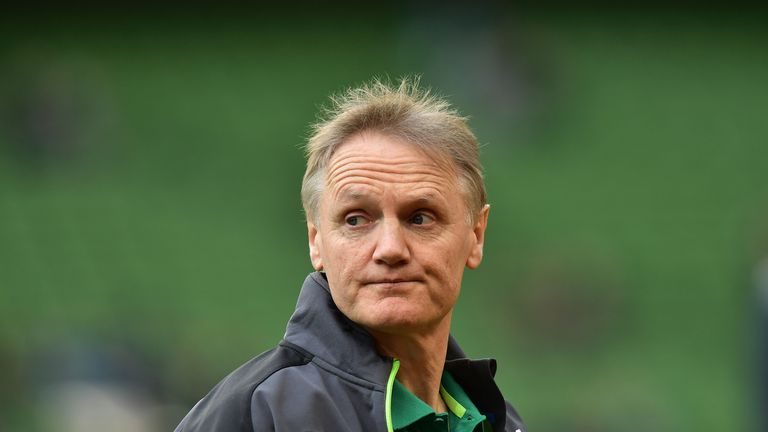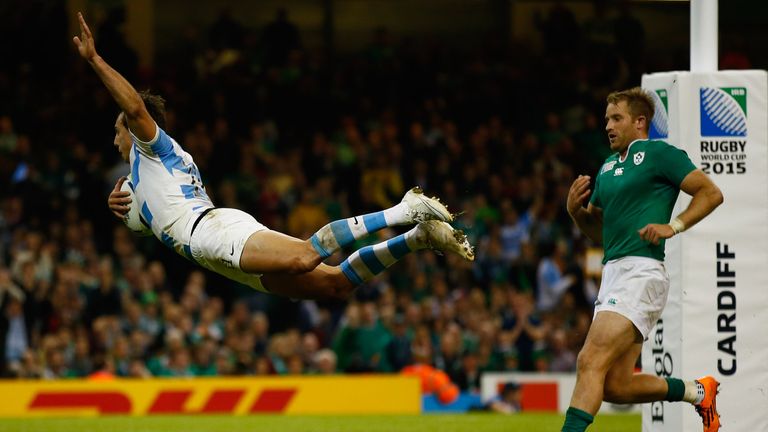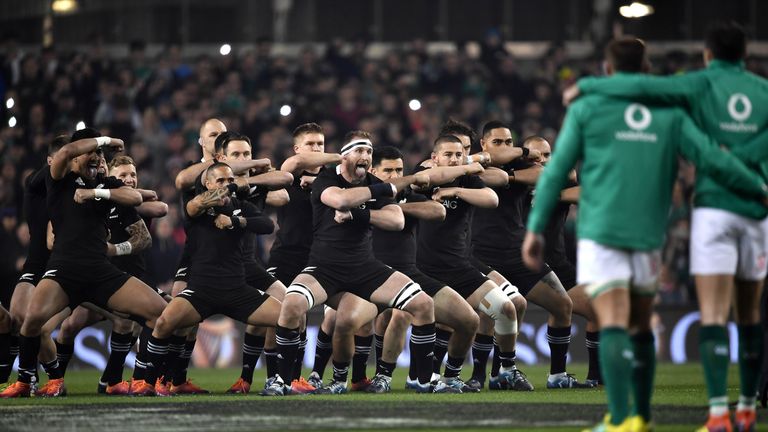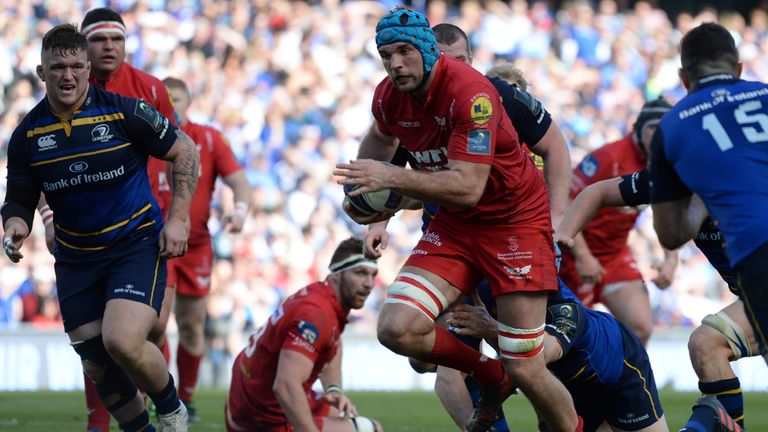Ireland's rise through rugby rankings is far from lucky
Sunday 25 November 2018 22:23, UK
Ireland's rise throughout this World Cup cycle has been nothing short of remarkable, but very little of it is down to luck.
October 18, 2015 was the lowest ebb of Joe Schmidt's tenure to date. Just a week after trouncing France 24-9 to top their World Cup pool, the Irish came up well short against a well-drilled Argentinian side, losing 43-20.
It wasn't difficult to fathom why they had failed so emphatically in the quarter-final. Losing Johnny Sexton, Paul O'Connell and Peter O'Mahony to injury during the win over Les Bleus gutted the side, and a lack of depth ensured they were incapable of dealing with such losses.
While the significant absences provided a perfectly understandable excuse, it came as little consolation ahead of a four-year wait to make amends in Japan.
Since that loss in Cardiff, Schmidt and the IRFU have looked to address the very issue, going about building depth which can negate such an injury crisis.
Three years on, they are considered to be the lineal best team in the world after beating the All Blacks despite missing three Lions, Seán O'Brien, Robbie Henshaw and Conor Murray.
Such depth is staggering, and it's clear that it didn't come about by chance. The IRFU have meant business, taking measures to ensure that they wouldn't fall at the same hurdle in 2019.
The management of the provinces has seen all four sides pulling in the same direction, with the interests of the national team at the heart.
Placing Irish players in key positions in the provinces has been essential - the moves to Munster and Ulster by Joey Carbery and Jordi Murphy respectively ensured men who are likely to play a role in Japan are starting week in, week out.
The succession policy which moved Ruan Pienaar out of Ulster, offering a platform for John Cooney to develop - a player who could still perhaps force his way onto Ireland's matchday 23 in the next 12 months.
The acquisition of Tadhg Beirne by Munster, thus making him eligible once again to play for the national team, has also served its purpose.
Even the manipulation of the controversial residency rules, as cynical as they may be deemed, have bolstered Ireland's hand with CJ Stander and Bundee Aki breaking into the national side.
Meanwhile, retaining the majority of players in the system, despite the lures of Top 14 riches, has been essential in managing the top players' game time across gruelling 10-month seasons.
The IRFU's prominence in the above moves has varied in each case, but they are all measures that have furthered the national team's interests. In all, it is plausible to suggest that the IRFU are running the world's tightest ship in rugby football at present.
This has all contributed to Ireland's recent success, and a Grand Slam, series victory in Australia and November triumph over the All Blacks give an indication of just where they're at heading into 2019.
Nonetheless, it's all well and good to heap praise in the third year of a World Cup cycle - the ultimate barometer comes next year in Japan.
In 2007 and 2015, Ireland came into World Cups off the back of successful Six Nations campaigns and major autumn scalps, and there were even mutterings that they were dark horses to capture the Webb Ellis Cup. Ultimately, they flattered to deceive on the biggest stage when the chips were down.
A quarter-final win would represent real progress next year, but given the success in 2018, a semi-final exit would be considered underwhelming by many. Recent fortunes suggest they are capable of going further.
In Tadhg Furlong, Conor Murray and Johnny Sexton, Ireland boast players who would walk onto any side in rugby right now. But they've taken world class XVs to the biggest show before: Brian O'Driscoll, Paul O'Connell, Ronan O'Gara et al being a case in point. What appears to be different now is that there is a capable squad, rather than just a XV.
On Saturday evening, that depth was highlighted. Andrew Conway, Ross Byrne, Tadhg Beirne, Rhys Ruddock and Jack Conan, none of whom were in the 23 that overcame New Zealand, gave Schmidt plenty of food for thought as they laid waste to a spirited USA side. Competition for places is fierce. Perhaps more crucially, there are few injuries that would severely handicap this Ireland side.
Through experience, it has been learned that strength in depth is just as important to World Cup aspirations as individual talent, and by that yardstick, Ireland must be considered real contenders.
With genuine world class talent in reserve in most areas of the field, Ireland have addressed the failures of 2015.
If they fail to live up to their potential in the Far East next year, it won't be for want of cover in their positions. They're heading to Japan next year, better equipped than any Irish side in the competition's history.





